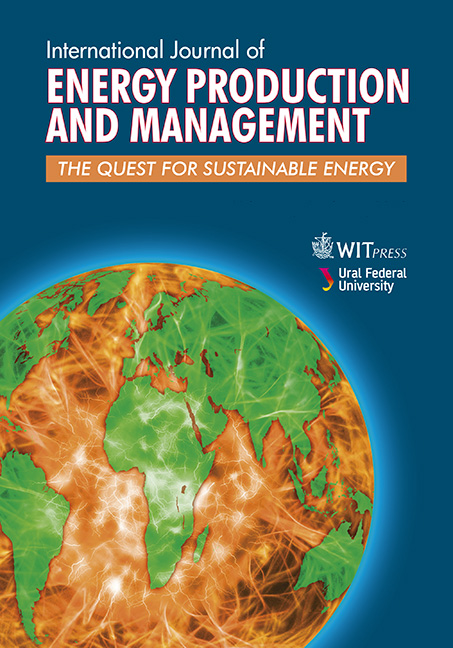Flexibility of drinking water systems: An opportunity to reduce CO₂ emissions
Price
Free (open access)
Volume
Volume 4 (2019), Issue 2
Pages
10
Page Range
134 - 144
Paper DOI
10.2495/EQ-V4-N2-134-144
Copyright
WIT Press
Author(s)
Chouaib Mkireb, Abel Dembele, Thierry Denoeux & Antoine Jouglet
Abstract
Drinking water systems (DWSs) are huge electricity consumers, mainly due to pumping operations. In these systems, electricity costs represent approximately one-third of the total operating costs. because of the environmental impact of electricity generation worldwide (coal, gas, and diesel), water systems also implicitly contribute to global warming. However, these systems have flexibility thanks to water storage structures (tank and reservoirs) and variable speed pumps. The flexibility of DWSs is generally used to optimize energy costs. Furthermore, this flexibility can also be used to provide an environmental and operational service for the power system, by reducing peak power load and the volume of energy transactions on wholesale markets. Indeed, peak power reduction can be sold by water utilities on electricity markets, preventing the production of an equivalent amount of additional energy. In France, peak hours require a massive use of fossil energy sources, which makes electricity production at these periods extremely expensive, both economically and ecologically. using a mathematical opti- mization model, we optimize the management of these peak periods by shifting load at off-peak hours and selling the reduced energy on the French wholesale energy market. In this paper, we explore the ecological benefits that water systems could provide through this optimization process. We evaluate the cO₂ emissions that can be effectively reduced on three real DWSs in France. For these three sys- tems, avoided cO₂ emissions were estimated at 2,190 kg/day for the largest system and 194 kg/day for the smallest one, which is equivalent to the emission of 145–1620 cars during 10 km of driving. We also evaluate, based on some hypotheses, the potential for cO₂ reduction from water systems at the French scale.
Keywords
CO₂ emissions, demand response, drinking water systems, peak energy load




